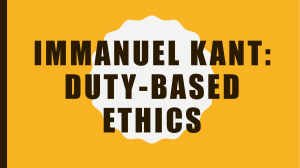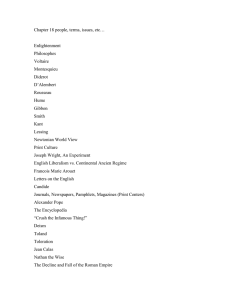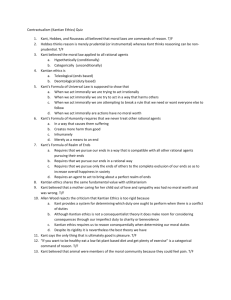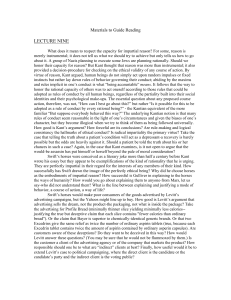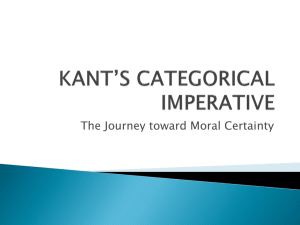LITERATURE AND ETHICAL VALUES: 21L.450 Fall, 2002 The Metaphysical Foundation of Morals
advertisement
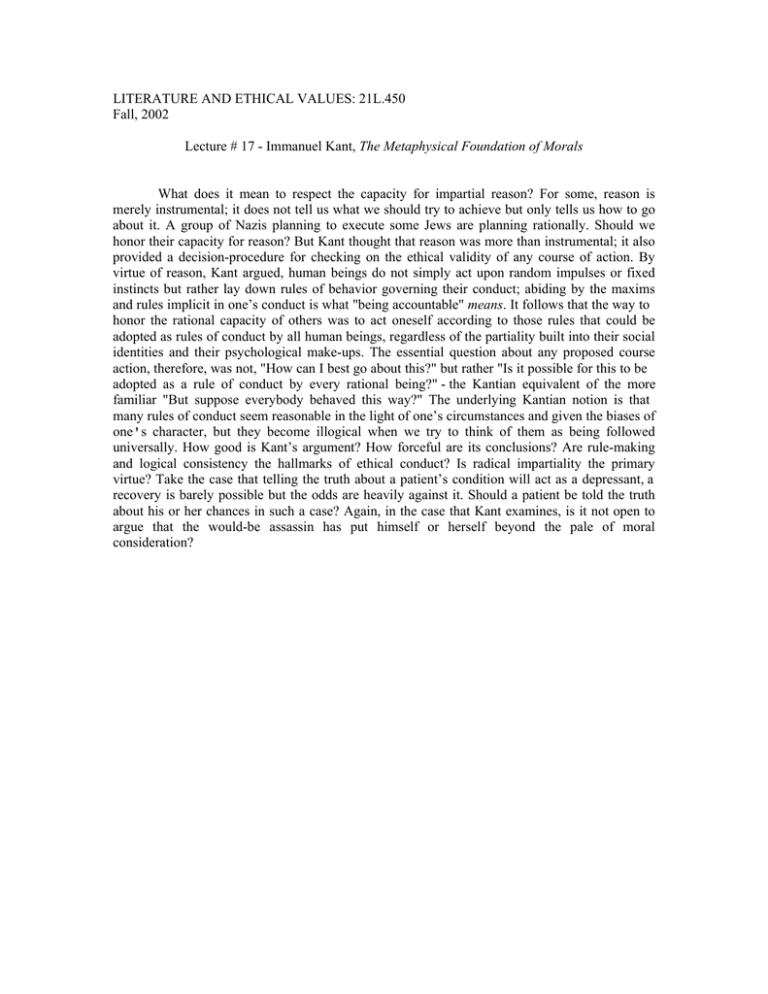
LITERATURE AND ETHICAL VALUES: 21L.450 Fall, 2002 Lecture # 17 - Immanuel Kant, The Metaphysical Foundation of Morals What does it mean to respect the capacity for impartial reason? For some, reason is merely instrumental; it does not tell us what we should try to achieve but only tells us how to go about it. A group of Nazis planning to execute some Jews are planning rationally. Should we honor their capacity for reason? But Kant thought that reason was more than instrumental; it also provided a decision-procedure for checking on the ethical validity of any course of action. By virtue of reason, Kant argued, human beings do not simply act upon random impulses or fixed instincts but rather lay down rules of behavior governing their conduct; abiding by the maxims and rules implicit in one’s conduct is what "being accountable" means. It follows that the way to honor the rational capacity of others was to act oneself according to those rules that could be adopted as rules of conduct by all human beings, regardless of the partiality built into their social identities and their psychological make-ups. The essential question about any proposed course action, therefore, was not, "How can I best go about this?" but rather "Is it possible for this to be adopted as a rule of conduct by every rational being?" - the Kantian equivalent of the more familiar "But suppose everybody behaved this way?" The underlying Kantian notion is that many rules of conduct seem reasonable in the light of one’s circumstances and given the biases of one's character, but they become illogical when we try to think of them as being followed universally. How good is Kant’s argument? How forceful are its conclusions? Are rule-making and logical consistency the hallmarks of ethical conduct? Is radical impartiality the primary virtue? Take the case that telling the truth about a patient’s condition will act as a depressant, a recovery is barely possible but the odds are heavily against it. Should a patient be told the truth about his or her chances in such a case? Again, in the case that Kant examines, is it not open to argue that the would-be assassin has put himself or herself beyond the pale of moral consideration?

